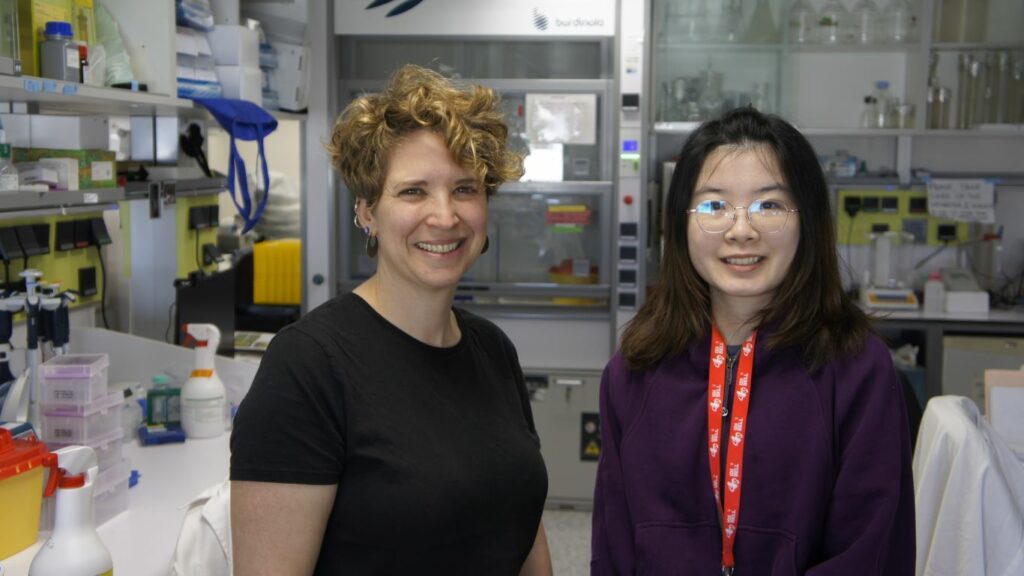Until now, most genetic studies in cancer research have concentrated efforts on investigating alterations that have a direct effect on protein-coding genes. However, it is believed that around 90% of cancer-related genetic variants are found in non-coding regions, which can indirectly regulate and affect gene activity. These have not been studied as much because, as they do not code for proteins, it is very difficult to determine how they influence and affect disease progression. In that sense, they remain a real mystery to current research.
But now, a team of researchers from Shenzhen Bay Laboratory (SZBL) led by Dr. Lei Li, in collaboration with the Gene Regulation of Cell Identity group of IDIBELL led by Dr. Mireya Plass, has taken a step further to try to understand the impact of these regions in the risk and development of cancer. This collaboration has resulted in a publication in the journal Nature Communications, where the first author is Hui Chen, a PhD student from the joint programme between the two institutions.
In the study, they have analysed the crucial role of variants found in non-coding regions, looking especially at those involved in a biochemical process called APA (alternative polyadenylation). In the study, they have identified hundreds of these APA-mediated genes involved in tumour growth and cell death processes, which would imply a determinant role in the development of cancer. Most of them have been associated with breast and prostate cancer and 62% had not been found in previous studies. That such a high percentage were completely new findings demonstrates the potential of analysing these variants to uncover new risk factors for cancer, revealing new mechanisms by which genetics may contribute to cancer debut and development.
To focus the study and validate its usefulness with a specific case, the team of researchers focused on the analysis of variants affecting the CRLS1 gene, particularly related to breast cancer. As expected, they have corroborated that variants that alter the APA process have an impact on the abundance of protein derived from CRLS1, significantly increasing its quantity, which has been linked to an increased risk of breast cancer.
In short, the aim is to continue with the study of the new variants identified to better understand their involvement in cancer and the mechanisms by which they act. Investigating these factors could, in the future, allow researchers to propose therapeutic strategies that target APA processes.
The Bellvitge Biomedical Research Institute (IDIBELL) is a biomedical research center created in 2004. It is participated by the Bellvitge University Hospital and the Viladecans Hospital of the Catalan Institute of Health, the Catalan Institute of Oncology, the University of Barcelona and the City Council of L’Hospitalet de Llobregat.
IDIBELL is a member of the Campus of International Excellence of the University of Barcelona HUBc and is part of the CERCA institution of the Generalitat de Catalunya. In 2009 it became one of the first five Spanish research centers accredited as a health research institute by the Carlos III Health Institute. In addition, it is part of the “HR Excellence in Research” program of the European Union and is a member of EATRIS and REGIC. Since 2018, IDIBELL has been an Accredited Center of the AECC Scientific Foundation (FCAECC).

